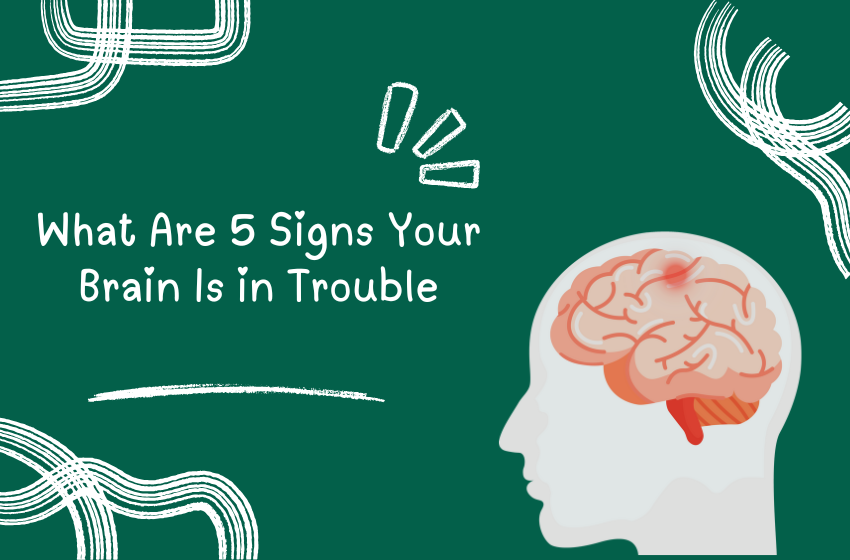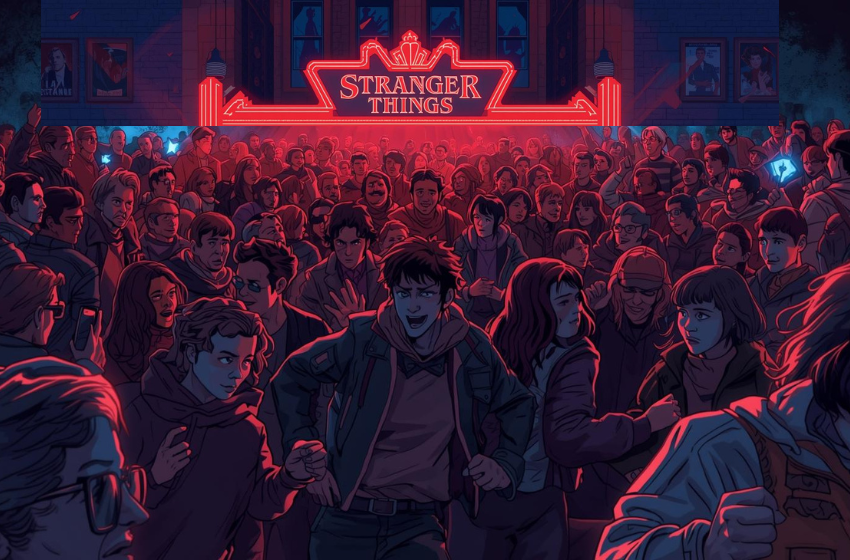
What Are 5 Signs Your Brain Is in Trouble
What are 5 signs your brain is in trouble? If you notice odd changes in thinking, mood, movement or balance, your brain may be asking for help. Many people ignore these changes as just “getting older” or “stress”, but they can be early indicators of serious issues such as symptoms of brain damage, brain diseases that can kill you or permanent brain damage symptoms.
By understanding the warning signs and recognising them early, you can get help sooner and possibly prevent long-term problems. In this article, we cover five key signs, explain how they relate to brain problem symptoms, and point out when you should see a doctor.
5 Signs of Your Brain is in Trouble
Here are some signs that are red flag for your brain:
1. Memory loss, confusion or cognitive decline
One of the most telling brain problems symptom is when your memory, focus or mental clarity starts to slip. You might forget conversations, get lost in familiar places, struggle to find words or feel constantly disoriented. These changes may seem gradual, but they signal that something is affecting brain function.
In the case of brain tumours, for example, cognitive symptoms like memory trouble and personality changes can show up early. Also with traumatic brain injury or other damage, confusion and cognitive issues are common.It counts as a major warning, if you or a loved one are experiencing these issues without an obvious cause (such as lack of sleep or stress).
2. Persistent or worsening headaches and seizures
When the brain is under stress, one major brain problems symptom to watch is headache—especially when it’s new, worsening or comes with other changes. According to medical sources, headaches are the most common symptom of a brain tumour. About half of people with brain tumours report headache.
Seizures are also a red flag. The tumour or damage may disrupt electrical activity in the brain leading to convulsions.
If the headaches wake you up, make you nauseous, come with vomiting, or if you have a seizure, you must seek medical attention right away. These are key signs of brain diseases that can kill you or permanent brain damage symptoms if left unchecked.
3. Changes in movement, coordination or strength
Another vital sign here: if you notice that one side of your body feels weak, your balance is off or walking becomes awkward, these are serious brain problems symptom. In the case of a brain tumour, such neurologic symptoms are listed as common: weakness, numbness or paralysis on one side, loss of balance or dizziness. Also, with brain damage from injury or stroke, these motor-coordination issues often surface.
Don’t ignore a gradual limp, a drifting gait or difficulty holding things. They may point to deeper trouble in brain pathways and are among the signs your brain is in trouble.
4. Sudden personality, mood or vision changes
When your behaviour, mood or vision shifts without a clear cause, the brain may be signaling distress. Mood swings, anxiety, depression, irritability or abrupt personality shifts are all brain problems symptom. For example, in brain tumour studies, mood and language clusters (sadness, anxiety, difficulties speaking) were frequently reported.
Vision problems (blurred vision, double vision, loss of vision) or hearing and speech trouble also fall in this category. The location of the problem in the brain determines what shows up.
When you realise you’re not acting like yourself, or close ones say you’ve changed — this is not just “stress”. It could be one of the signs your brain is in trouble.
5. Unexplained dizziness, nausea or tingling sensations
Finally, recurring dizziness, nausea (especially in the morning or when changing position), tingling, numbness or sensory changes (pins and needles) cost attention. These symptoms can arise when the brain is under pressure or injured. In traumatic brain injury cases, vertigo, headaches and sensory problems are typical. With brain tumours, dizziness and sensory symptoms are also reported.
It may point to a serious brain condition or permanent brain damage symptoms starting, when you find yourself with dizzy spells you can’t explain, or you feel a weird tingling on one side.
Why timing matters for brain diseases that can kill you?
Getting help early matters for brain diseases that can kill you. For instance:
- Every year in the U.S., more than 69,000 deaths happen due to traumatic brain injury.
- Around 18,330 people in the U.S. will die from malignant brain or spinal cord tumours in 2025.
- Many brain tumour symptoms appear subtle at first. In one analysis, >50 % of patients reported more than 10 concurrent symptoms.
Because the skull is a fixed space, any lesion, bleed or growth in the brain often causes pressure, leakage of fluid or damage to nerve pathways. That’s why early warning signs—your memory slipping, headaches, personality shifts—shouldn’t be dismissed. They could be the first cracks in brain integrity.
What you can do when symptoms of brain damage began?
- Track your symptoms: Note when changes began, how frequent they are, and if they’re getting worse.
- See a doctor: Tell them you are concerned about brain health because you’ve noticed signs your brain is in trouble.
- Get appropriate tests: Your physician may order imaging (MRI or CT), neurologic exams, or refer you to a specialist.
- Lifestyle factors help: Though not a substitute for medical care, healthy sleep, proper hydration, exercise, avoiding head trauma and managing chronic disease all support brain health.
- Involve your close ones: Sometimes others notice changes before you do — listen to them.
Final Thoughts
Recognising what are 5 signs your brain is in trouble empowers you to act instead of waiting. These signs — memory decline, headaches/seizures, movement problems, mood or vision changes, unexplained dizziness or tingling — can signal major issues such as symptoms of brain damage, brain diseases that can kill you or even permanent brain damage symptoms.
Early response often means better outcomes. Don’t wait for them to get worse. If something feels off, reach out to your healthcare provider today.
FAQs
One of the earliest symptoms may be confusion or trouble concentrating, often after a head injury.
If you have persistent new changes like memory loss, headaches, seizures, mood shifts, coordination problems or unexplained sensory issues, you should consult a doctor.
Some early warning signs include: persistent sadness, anxiety, mood swings, sleep changes, social withdrawal, poor concentration, irritability, appetite change, unusual fears and tiredness.
(Note: these focus on mental health broadly, not just brain structural problems.)
Warning signs often include: persistent headaches (especially worse in mornings), seizures, vision/hearing problems, weakness or numbness on one side, memory or personality changes, and balance or coordination loss.









